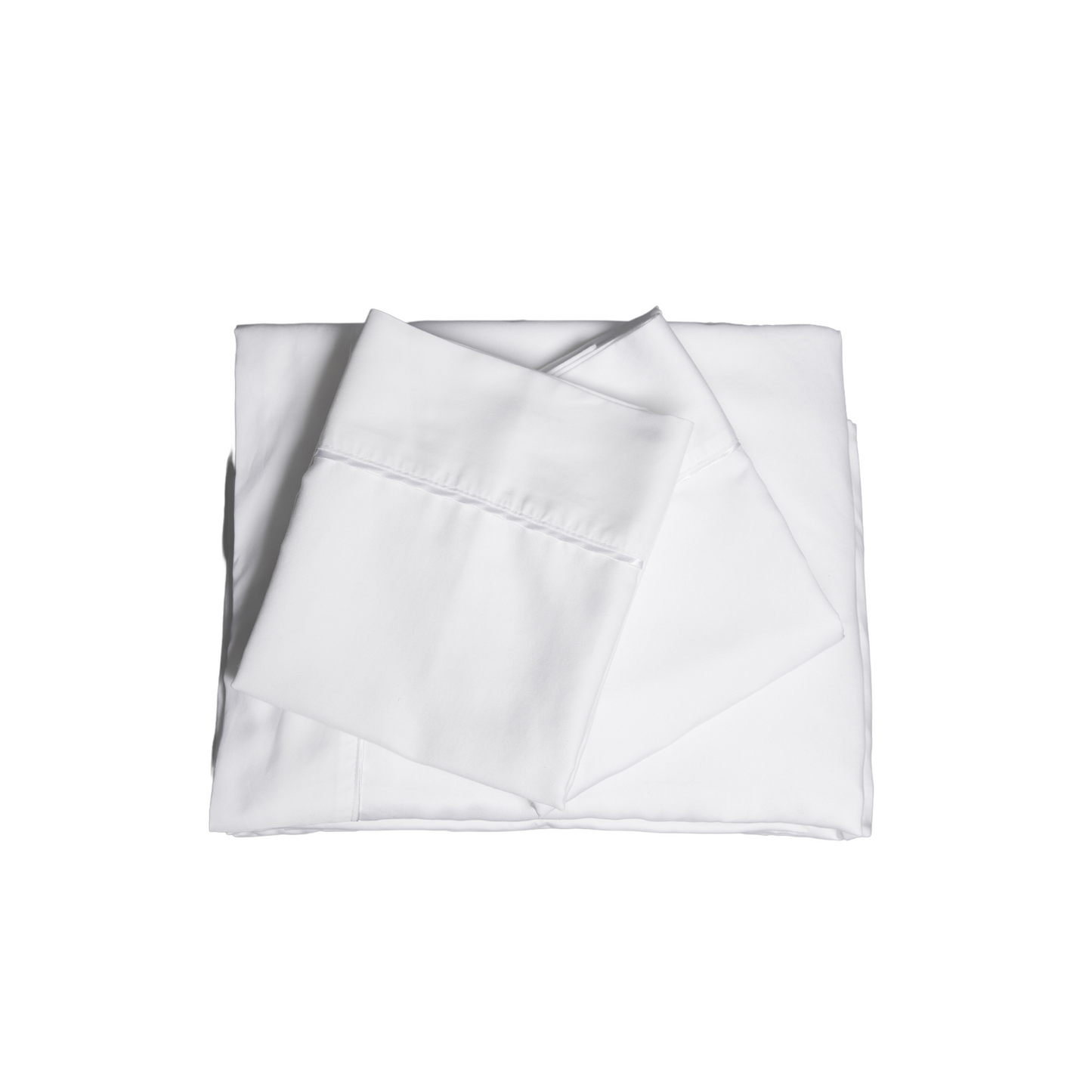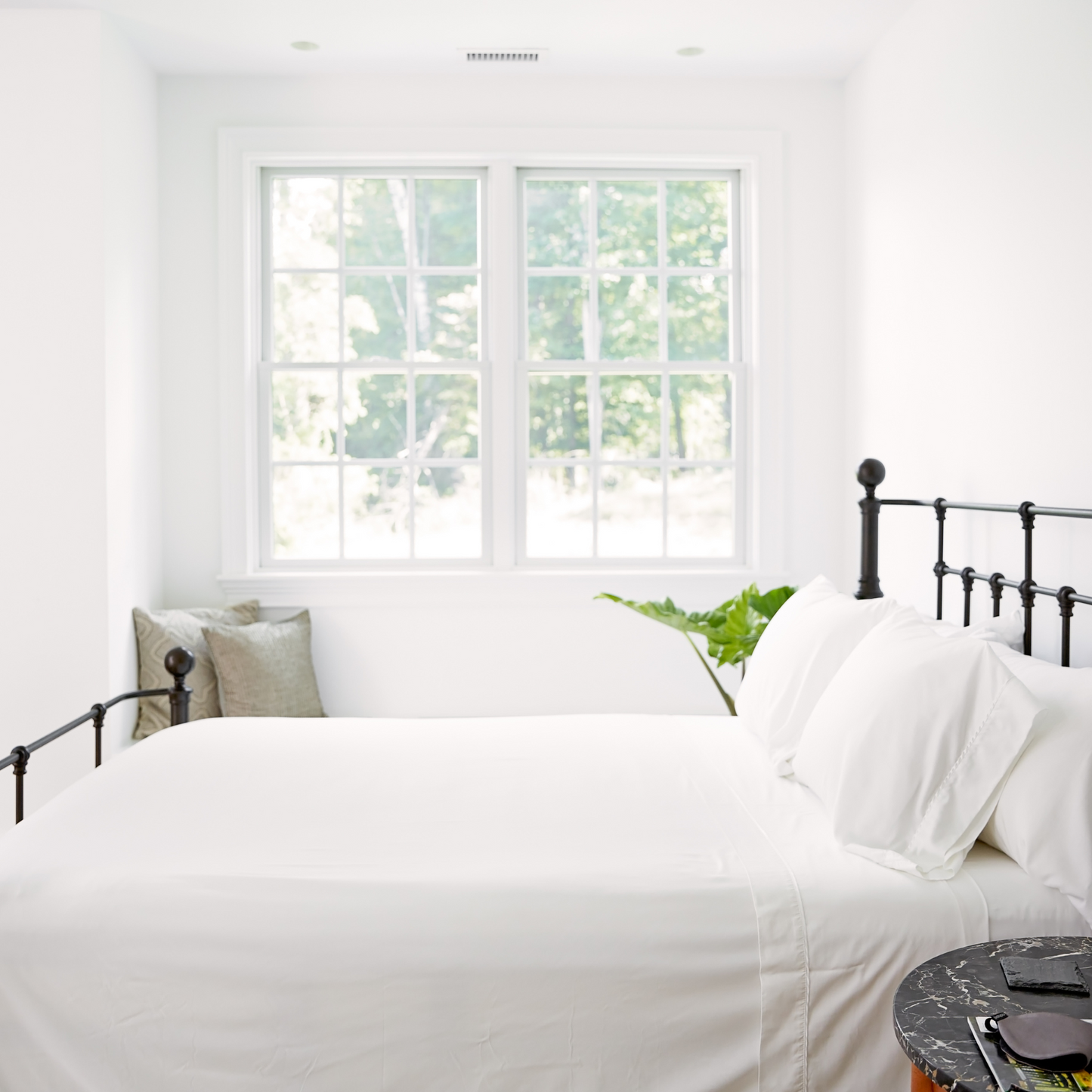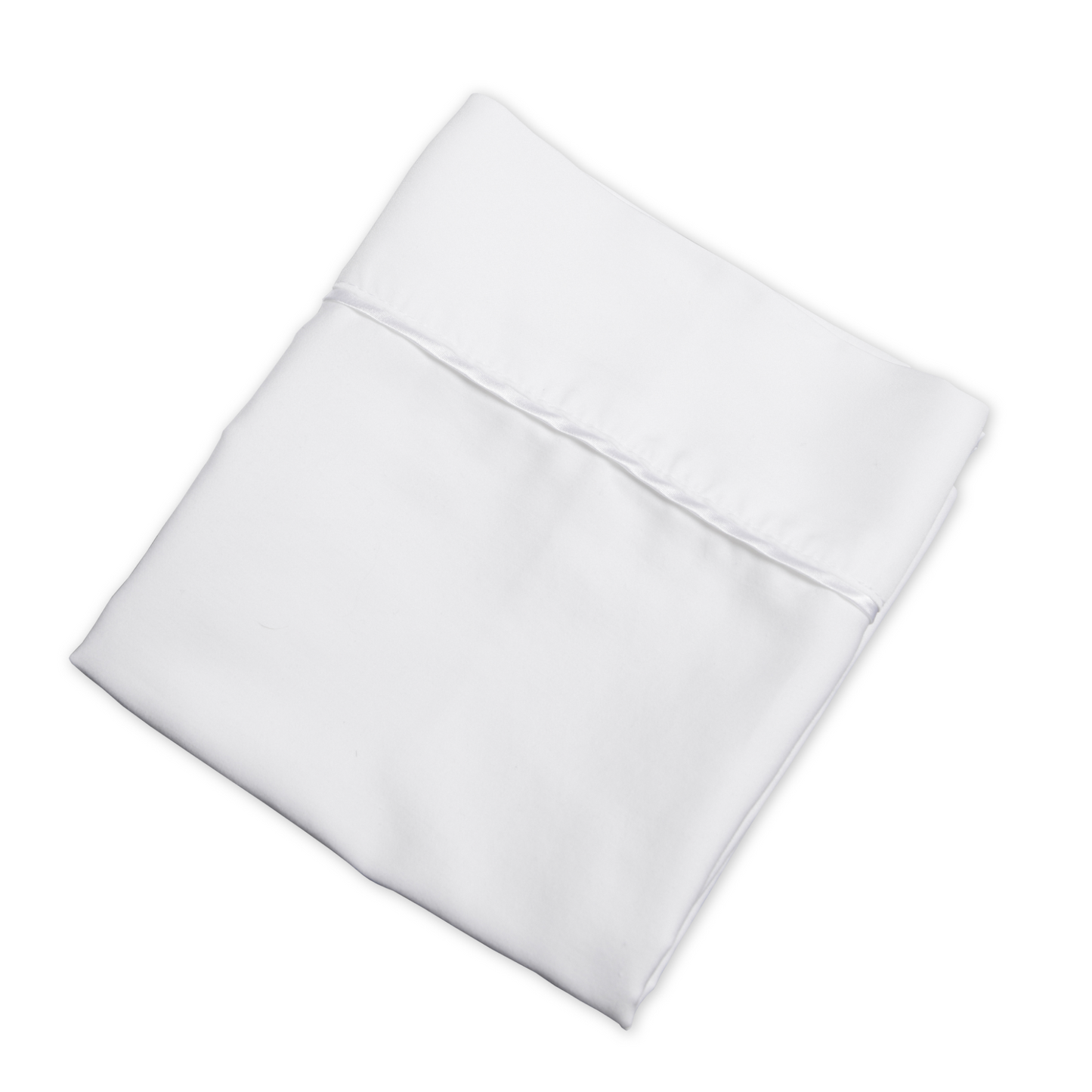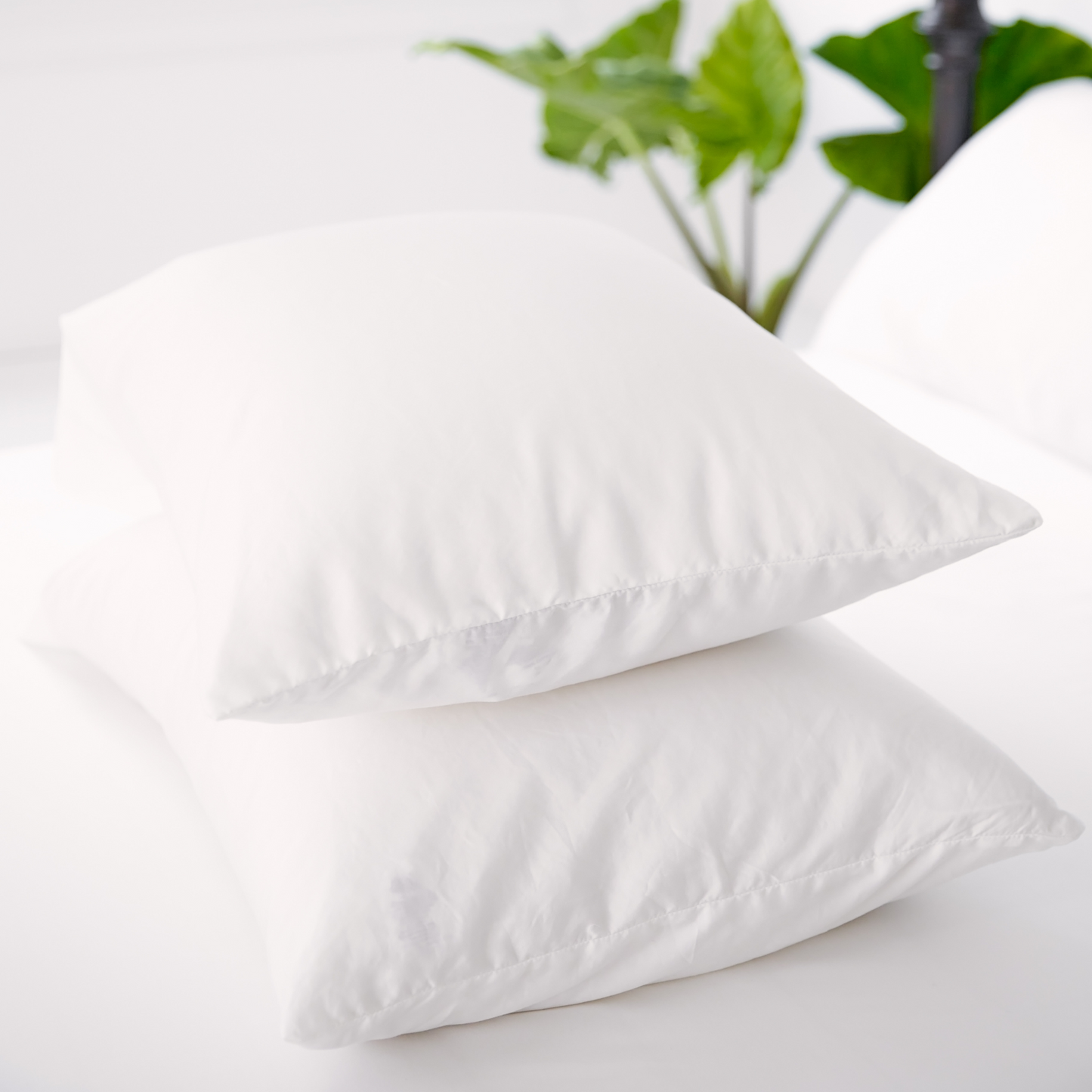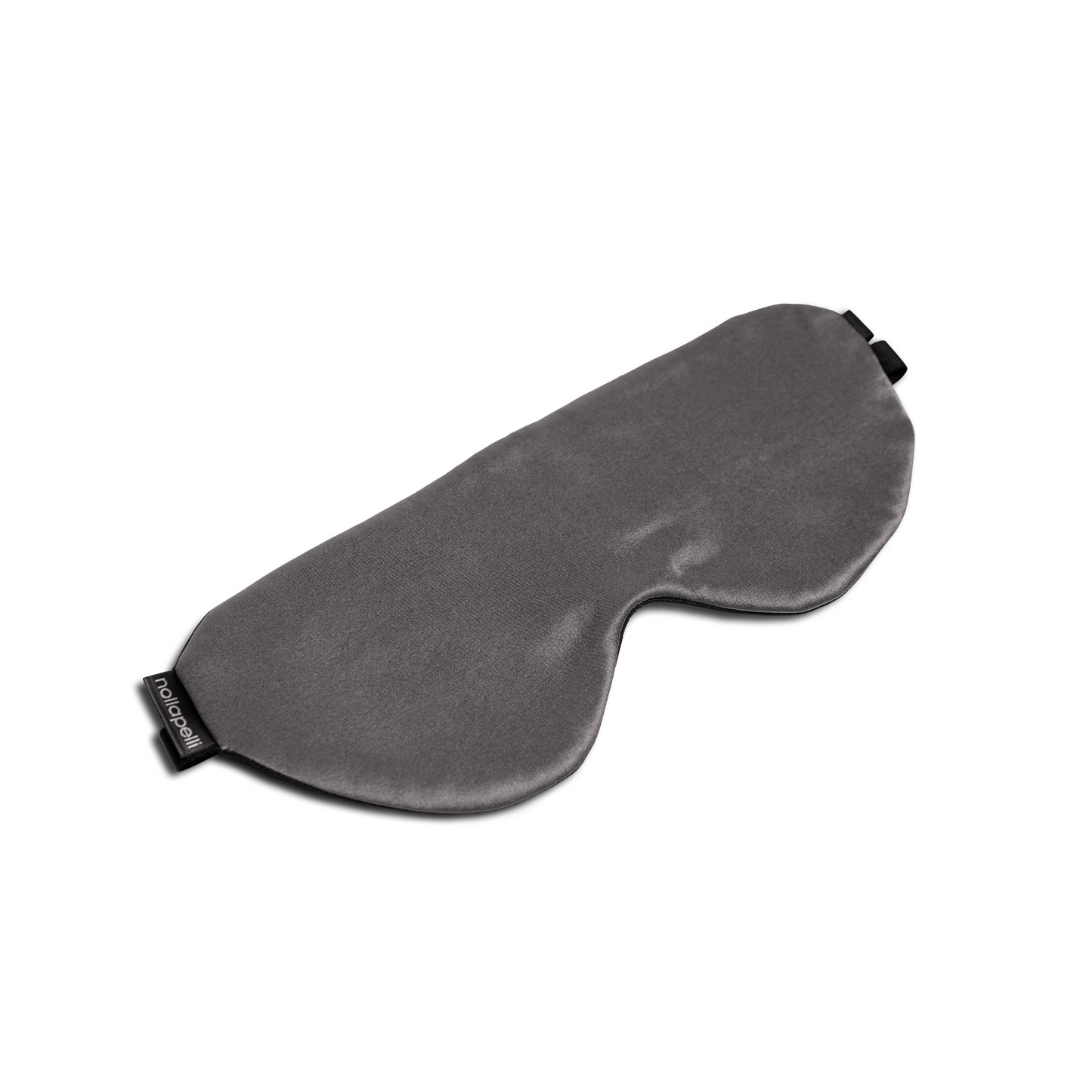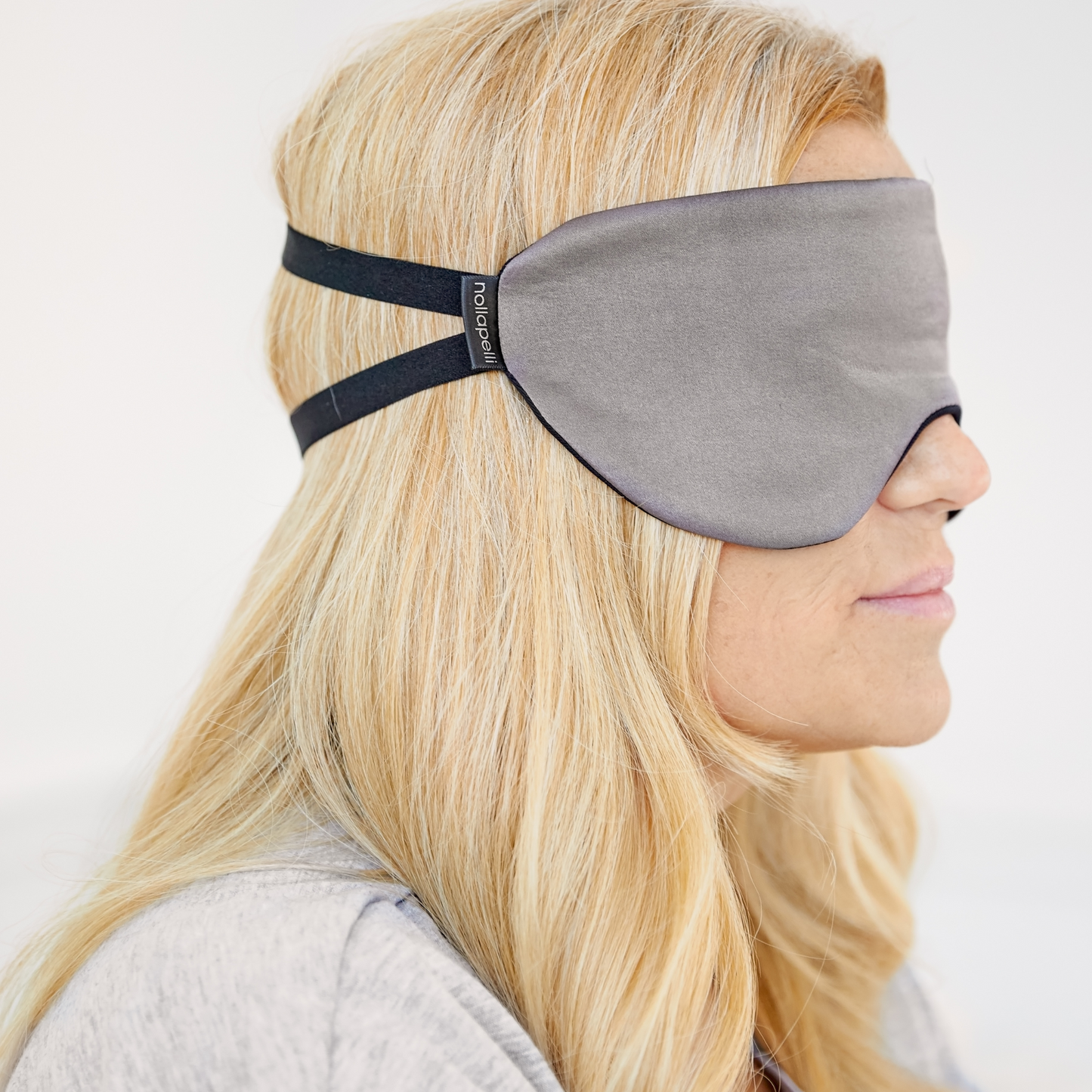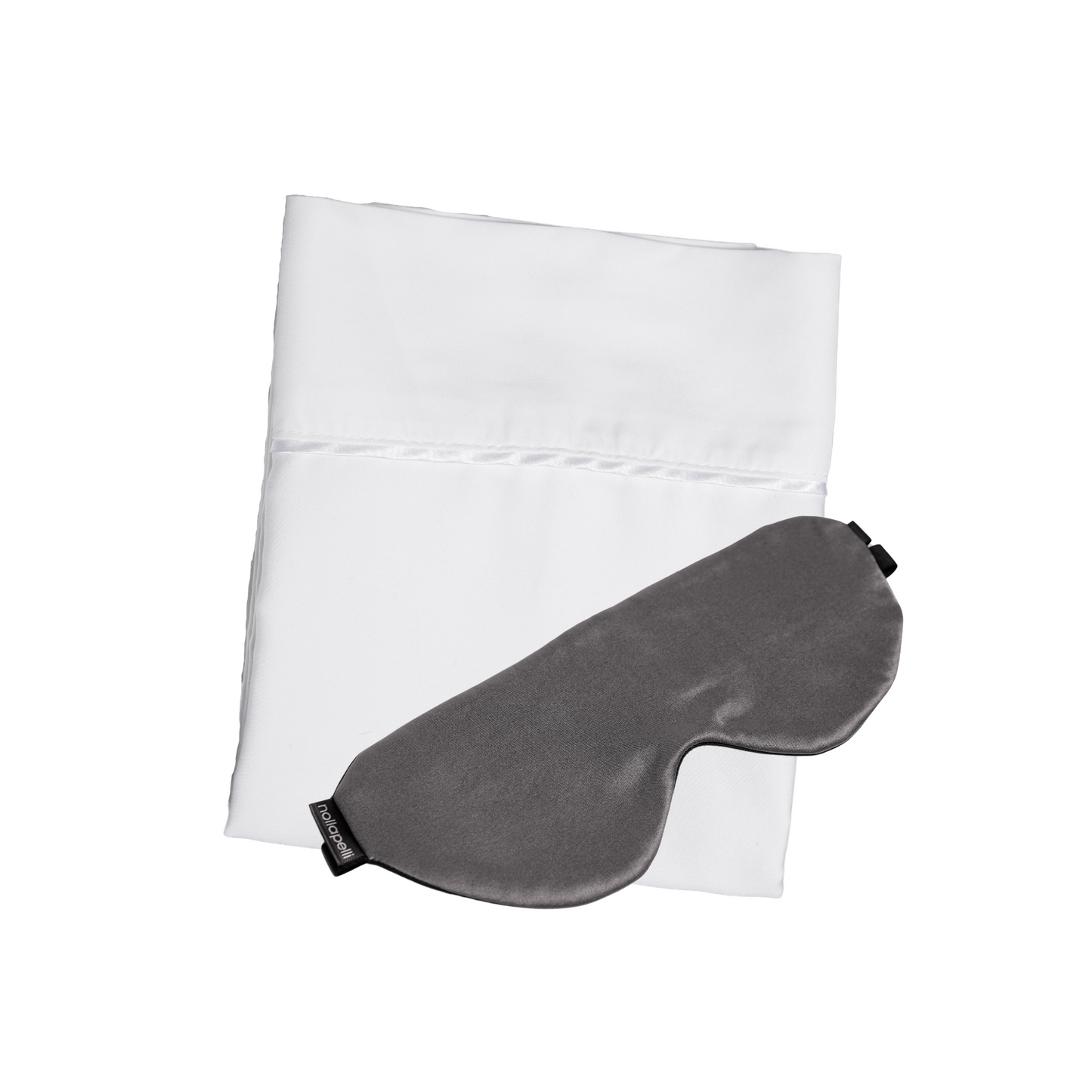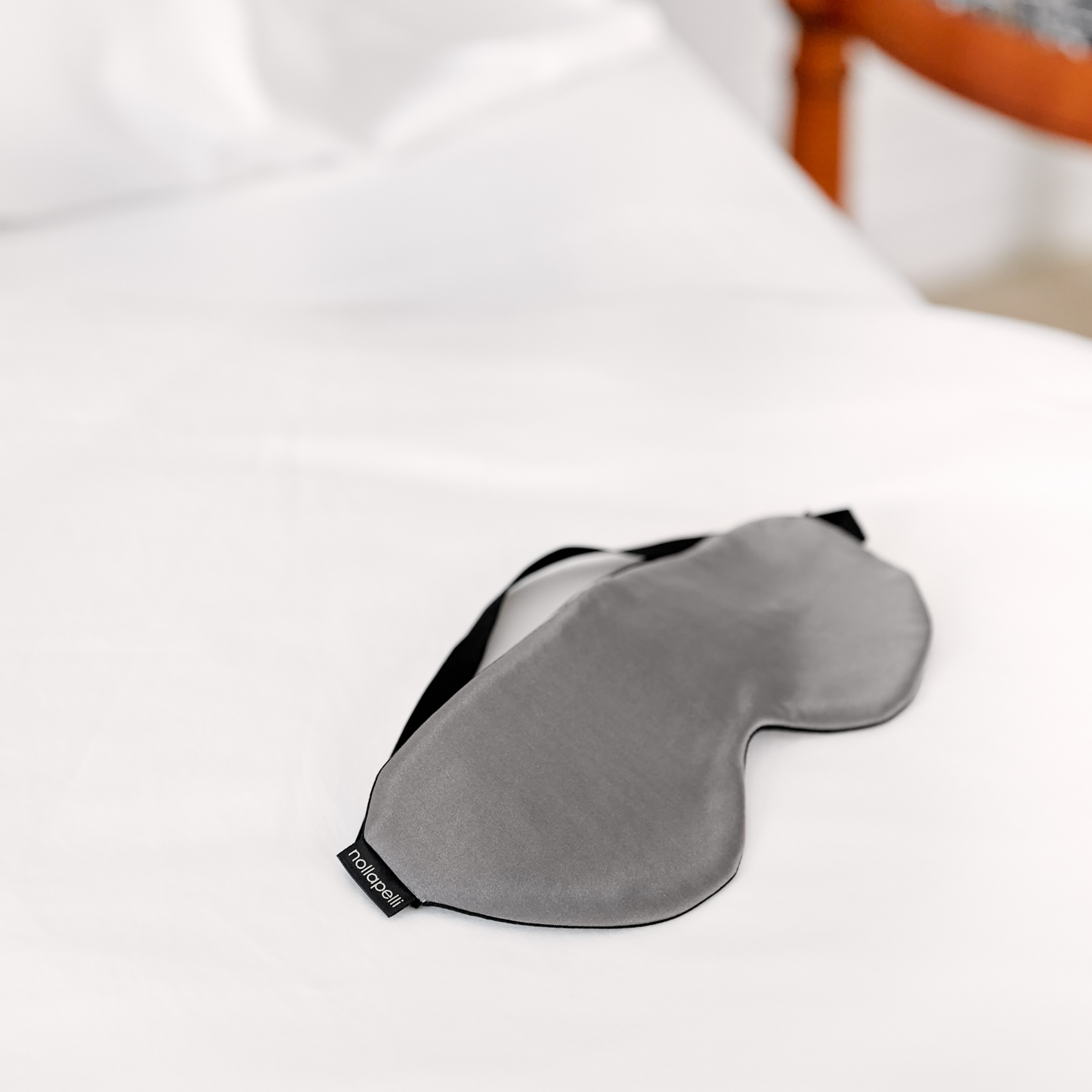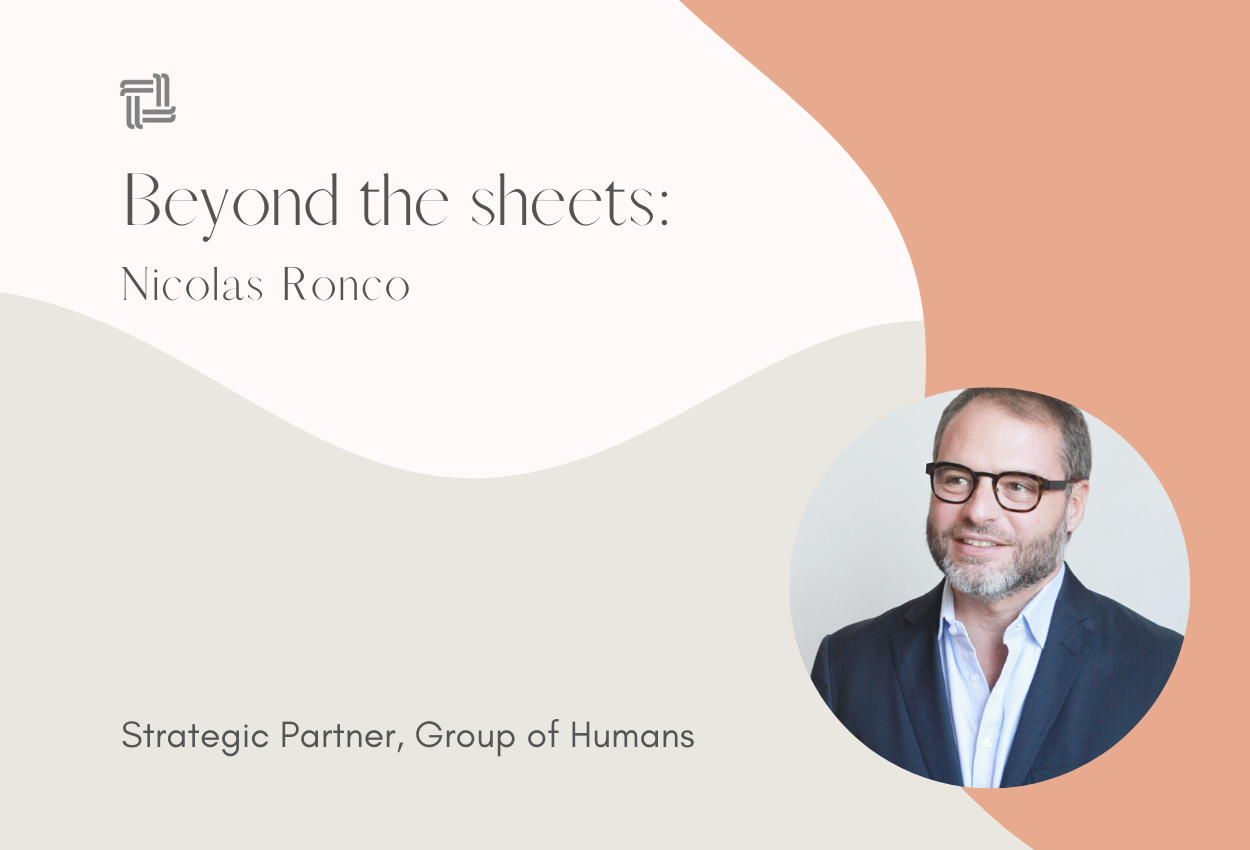
Beyond the Sheets is a monthly series where we share the health and wellness journeys of fellow wellness disruptors; those, like our founder Allison, forging innovation around sleep, skincare, and overall well-being. This edition features Nicolas Ronco.
Have you thought about why you engage in the wellness activities that you do? Does the fear of aging make you buy creams or innovative bed linens? Does the risk of skin cancer make you apply sunscreen? Do swollen morning eyes or vulnerability to sickness make you go to bed on time? These questions and more flooded my mind after talking to Nicolas Ronco, a captivating advocate for sleep.
Nicolas is the definition of a visionary. In 2007, long before sleep was taken seriously, Nicolas founded YeloSpa, a network of urban spas rooted in sleep therapy. He sold the company last year and now is a partner at Group of Humans, an online branding agency with high-profile clients such as Google and Intel.
Nicolas combines his love for a healthy, sustainable lifestyle with his vast entrepreneurial and corporate knowledge. His extensive travel allows him to approach wellness from multiple viewpoints, which selfishly gives us an insight into how we in the United States approach the topic. This conversation will challenge you to explore the why behind your wellness choices and how much you actually know about your own sleep hygiene.
…
Jessa (Nollapelli): YeloSpa was a bit ahead of its time with its approach to sleep. How was it born?
Nicolas: YeloSpa was born out of a business trip I had to Japan. I landed in Tokyo, and on the first day, there was an earthquake. As a result, I couldn’t sleep because I was paranoid about an aftershock. For Japanese people, it was business as usual, but I did not sleep properly for a week and developed some inflammation as a result. I took an afternoon off from a very busy schedule, and without knowing what it was at the time, I did a 1-hour reflexology session. It is an intricate technique whereby the practitioner works on reflex points on your feet which relate to specific organs in your body. The effect on me was tremendous. It was an epiphany to see that the body really craves homeostasis. YeloSpa was born out of the idea that we were living unsustainable lifestyles in general, in major urban centers, and that we have to mitigate the negative side effects of this lifestyle. YeloSpa was specifically an urban spa. The first two offerings were reflexology and sleep therapy in New York City, the city that never sleeps (but sometimes needs a nap). Sleep is a pillar of your health.
Jessa: What is sleep therapy?
Nicolas: I realized that people didn’t know the most basic things about sleep hygiene. Each client with sleep issues would receive a personal consult; we would host symposiums as well. It is understanding psychological factors, but there are also physical factors – do you have a computer in your bedroom, what is your nighttime ritual, when do you eat, do you drink alcohol less than three hours before you go to sleep, etc.? We would take a deep dive into people’s habits and environments, and from that advise them on what is conducive to sleep and what is a potential issue.
Jessa: Since 2006, how has sleep evolved in popular discourse?
Nicolas: In the 20th century in the U.S., sleep was treated as a necessary inconvenience. Sleep is now taken way more seriously. People are more knowledgeable about what it means to have quality sleep and its effect on heart health, emotional and mental health, the immune system, and premature aging. This results in a willingness to invest more in sleep.
Jessa: Speaking of investment, you own our soft sheets. Give us your 30-second review!
Nicolas: I love the way Nollapelli sheets feel. They were comfortable from day one. They really breathe, I don’t sweat in them as much. You have this sensation that you are less in a panic, there is not as much sweating, and that makes a big difference.
Jessa: Your travels have exposed you to numerous sleep cultures. How does the United States differ when it comes to sleep?
Nicolas: There is a disregard for what your body is telling you that I don’t see in other countries. Your body tells you when it wants to lay down, but in the U.S. you don’t allow it to do that. We reach for coffee and more coffee and disrupt melatonin levels even more instead of listening to our bodies. Unless there is a study that tells you to take a nap at 3 pm three times a week to prevent a heart attack, no one is going to do it.
Jessa: So you're saying, in order for us to make sleep a priority, we need to associate the lack of sleep with a risk..?
Nicolas: You are right. It’s more of a cultural thing in the U.S. I’ve been in this country for 33 years, I am an American citizen, a dual citizen, but I’ve never seen a culture that is as fear-based as the U.S. It permeates the whole society; it goes into wellness and sleep. Unless people are scared into changing behaviors, they don’t change.
Jessa: What is one thing you do for your sleep every day?
Nicolas: The ritual is the most important thing for sleep. That is the one thing I advise all my clients. The ritual can be as simple as a hot bath or spraying aromatherapy like lavender on your bedsheets- even if these things have a placebo effect, they still work.
